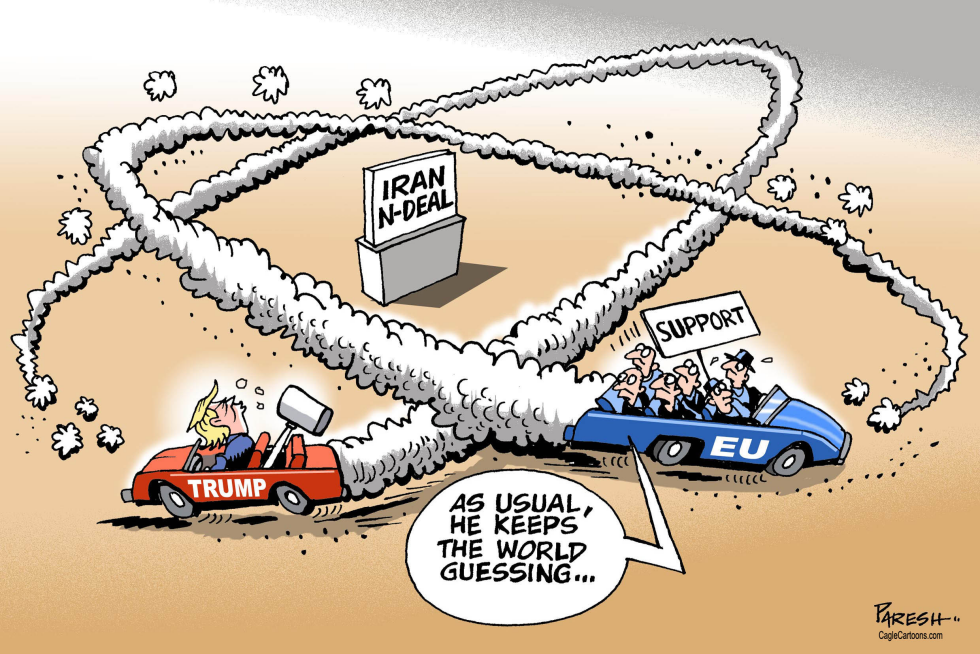This is the US proposal to resolve Iran's uranium enrichment dispute
An official from an Arab state revealed that the Americans are proposing to transfer uranium enrichment to a facility that would be built on an island in the Gulf, though it's doubtful Tehran will agree.
An Arab diplomatic source told Israel Hayom that the US proposal to Iran includes the construction of a uranium enrichment facility in the Gulf region, whose output would serve several countries in the area. The source believes the proposal presents an original solution to the contentious issue of whether to allow Iran to enrich uranium on its own soil, even for civilian purposes. According to the plan, reaching a full resolution would take several years, during which time supervised interim arrangements would permit enrichment solely for civilian nuclear facilities.
The document proposes that enrichment take place only at above-ground facilities, not underground ones, and only if Iran agrees to dismantle its underground and non-civilian facilities.
The source further revealed that while the proposal is a step toward Iran, it's unlikely the Islamic Republic will respond positively. The timing of any resumption of negotiations remains unclear. However, the source added that both sides are highly motivated to reach an agreement, and therefore Iran is unlikely to reject the proposal outright.
Watching with concern
The position of the
concerned Gulf states was clearly articulated in a statement by the Gulf
Cooperation Council (GCC), comprising Saudi Arabia, the United Arab
Emirates, Kuwait, Bahrain, Oman, and Qatar. The GCC expressed concern
over developments in Iran's nuclear program and called for expedited
progress in reaching constructive agreements to safeguard regional
security. It urged Iran to fully comply with uranium enrichment
limitations for peaceful purposes and to cooperate with the
International Atomic Energy Agency (IAEA).
The council stressed that any future regional or international nuclear negotiations with Iran must include Gulf states and address broader security concerns, such as ballistic missiles, drones, maritime safety, and the protection of oil infrastructure in the Persian Gulf. So far, Iran has refused to negotiate over issues not directly related to its nuclear program.
The GCC also condemned Iran's takeover of three islands in the Gulf that the UAE claims as its own. This point is notable, as a report in Arab media suggested the regional enrichment facility might be built on one of these disputed islands. According to the report, the US would manage the facility. If it were established on one of the three islands - Greater Tunb, Lesser Tunb, or Abu Musa - and transferred to American control, Iran could argue that the facility is still on its territory, while the Emiratis would ostensibly "agree" to the transfer, a diplomatic sleight of hand.
Meanwhile, Iranian government spokesperson Fatemeh Mohejerani said Tuesday that conflicting US positions are complicating efforts to achieve a breakthrough in the nuclear talks. "We are prepared for any scenario, but we will not leave the negotiating table. We are committed to dialogue and have maintained consistent positions. It is the contradictory statements from the Americans that have hindered progress," she said.
The UN Security Council is expected to convene later this month to review the implementation of Resolution 2231, which endorsed the 2015 nuclear agreement with Iran, known as the Joint Comprehensive Plan of Action (JCPOA).
Rosemary DiCarlo, the UN Under-Secretary-General for Political and Peacebuilding Affairs, is slated to brief the council on the UN secretary-general's report on compliance with the resolution. The European Union's representative, in his role as coordinator of the JCPOA Joint Commission, will also provide an update on implementation by the deal's signatories.
Trump faces domestic hurdles
It's important to note that even if a deal is reached, implementation may face challenges in the US. Senate Minority Leader Chuck Schumer delivered a scathing critique of the Trump administration on Monday over reports of an undisclosed potential agreement with Iran. He warned that it could undermine congressional oversight.
In a speech on the Senate floor, Schumer demanded that the administration "tell the truth immediately" following reports of a possible "side deal" that would allow limited enrichment within Iran. "If this is true, it is deeply troubling," he said. "What is in this so-called side deal? The American people deserve transparency." Schumer emphasized that any future agreement with Iran must address not only nuclear issues but also Tehran's support for regional terrorist organizations.
It is worth recalling that Republicans harshly criticized President Barack Obama over the 2015 nuclear agreement for concealing information, omitting issues such as terrorism financing and missile development, and for using procedural tactics to bypass Congress.


2 comments:
Iran is a theocratic death cult working very hard to get nuclear weapons. The normal rules do not apply. They are not a rational player.
I believe I know how this is going to end. It ain't good for Iran.
Post a Comment